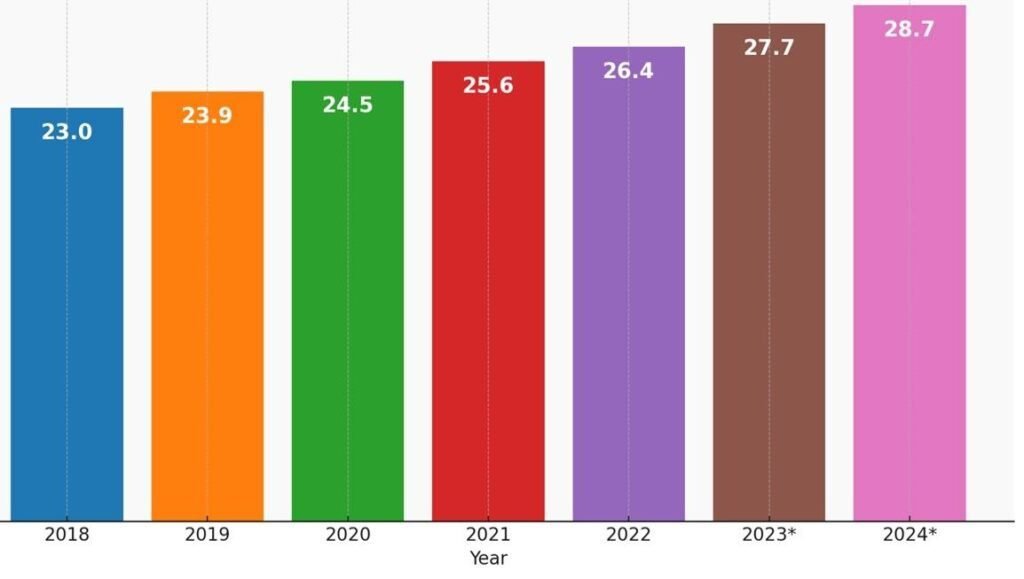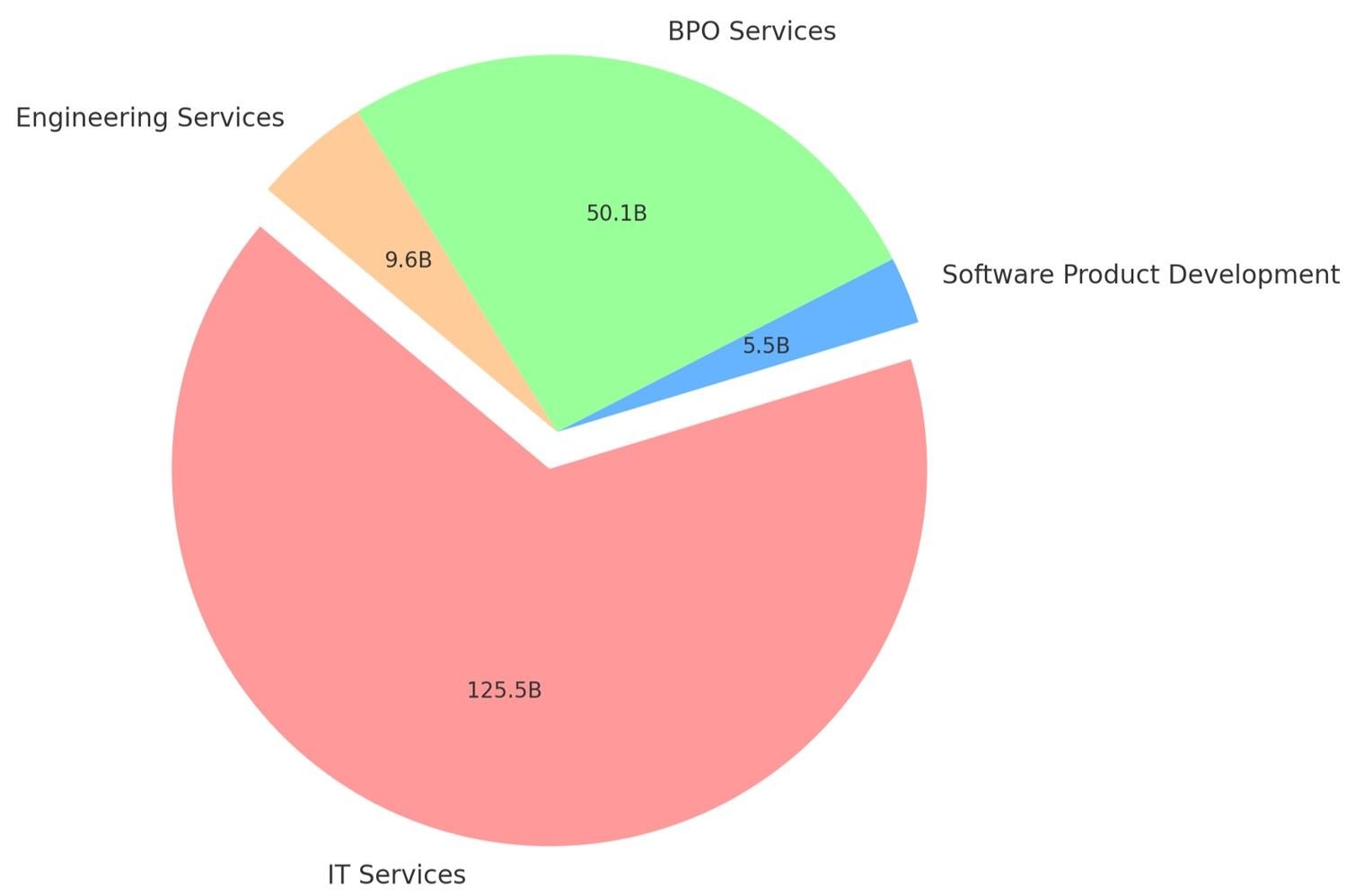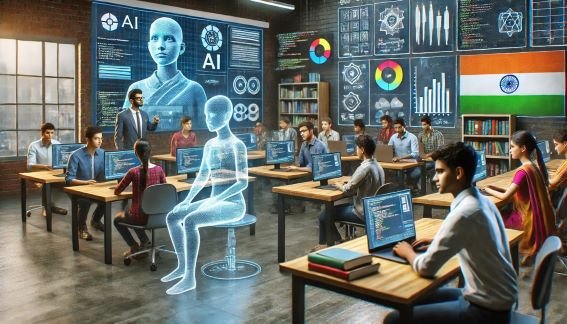AI Might Change Computer Science Education: Redefining Skills for Indian Tech Graduates
AI and the Future of Coding: What Indian Students Need to Know: With advancements in artificial intelligence, the landscape of computer science education is evolving globally and in India. Google recently revealed that over 25% of its new code is AI-generated, signaling a paradigm shift in software development. For a country like India, which produces over 1.5 million engineering graduates annually, such developments raise critical questions about the relevance of traditional coding skills and the future of tech education.
Exhibit 1: Number of software developers worldwide (Millions)

Understanding the distinction between code and software is crucial in this changing landscape. Code refers to the set of instructions that a program executes, while software is the functional product resulting from these codes, integrated and packaged for users. Traditional computer science education in India has heavily emphasized coding, focusing on syntax, language structure, and creating correct programs from scratch. However, with AI tools like GitHub Copilot and OpenAI’s ChatGPT capable of generating syntax-perfect code, the emphasis on manual coding is becoming less relevant.
Indian universities and institutions, including IITs and NITs, have traditionally focused on teaching students to code through rigorous exercises. Yet, AI coding tools now perform these tasks efficiently, making it essential for curriculums to shift towards broader software engineering concepts like system design, integration, quality assurance, and collaboration across large codebases.
AI’s Role in Transforming Software Development
AI-driven tools are reshaping how developers work by automating routine tasks like debugging, code migration, and refactoring. In AI-assisted development, human developers act as supervisors, reading, understanding, and improving code generated by AI. This prompt-driven model requires strong analytical skills rather than the ability to write code from scratch.
Exhibit 2: Total Exports of Software Services (in USD Billions)

India, home to over 13 million coders, must adapt to this shift. While AI tools can enhance productivity, they also challenge the traditional roles of developers. This is especially pertinent given India’s dependence on IT services exports, which accounted for over $190 billion in 2023-24, making up a significant portion of the global IT workforce.
Reimagining Computer Science Education in India
India’s current focus on coding basics in school and higher education needs to pivot toward collaborative AI-driven software development. Students should be taught to work alongside AI tools, leveraging them to optimize workflows.
Universities could integrate courses on AI-assisted development, including modules on code comprehension, algorithm optimization, and managing AI-generated outputs. This approach mirrors how calculators revolutionized mathematics education—students learn high-level problem-solving but retain fundamental calculation skills.
Furthermore, advanced topics like continuous integration, version control systems, and software testing should become integral to Indian computer science curriculums. These skills are increasingly valuable as companies prioritize maintaining and scaling large codebases over creating new ones from scratch.
Implications for India’s Tech Workforce
While AI offers immense potential, it also raises concerns about job displacement. India’s software developers, who earn an average annual salary of ₹8-12 lakh, may find entry-level roles diminishing as AI tools handle routine tasks. However, this challenge could also drive innovation and upskilling.
AI’s automation capabilities could allow companies to take on more projects, creating opportunities for developers to focus on creative, strategic, and supervisory roles. Collaborative AI models can empower Indian coders to manage complex software systems efficiently, ensuring their relevance in a rapidly evolving industry.
Preparing for the AI Revolution in Indian Tech
The future of computer science education in India lies in embracing AI as a collaborator rather than a competitor. Policymakers, educators, and industry leaders must work together to revise curriculums and prepare students for a collaborative human-AI workforce.
As AI coding tools continue to advance, India’s strength in producing skilled tech talent will depend on its ability to adapt. By focusing on software engineering, human-AI collaboration, and advanced problem-solving skills, India can maintain its leadership in the global technology sector while empowering its next generation of tech professionals.
See Also:
Cognition’s AI Coding Tool Devin Could Disrupt India’s Software Industry
Racist Tirade at LAX Targeting Indian-American Family
Cyber Monday sales projected to reach $13.2 billion
5 MBBS Students Killed in Kerala Road Accident, Car Collides With Bus
JD Vance Thanksgiving Family Photo With Indian Relatives Goes Viral
——————————————————————————-
It would mean the world to us if you follow us on Twitter, Instagram and Facebook. At Newscazt, we strive to bring you the latest news and stories from India, World, Business, Sports, Entertainment and more. Our team of experienced journalists and writers are committed to delivering accurate and unbiased news and analysis.




